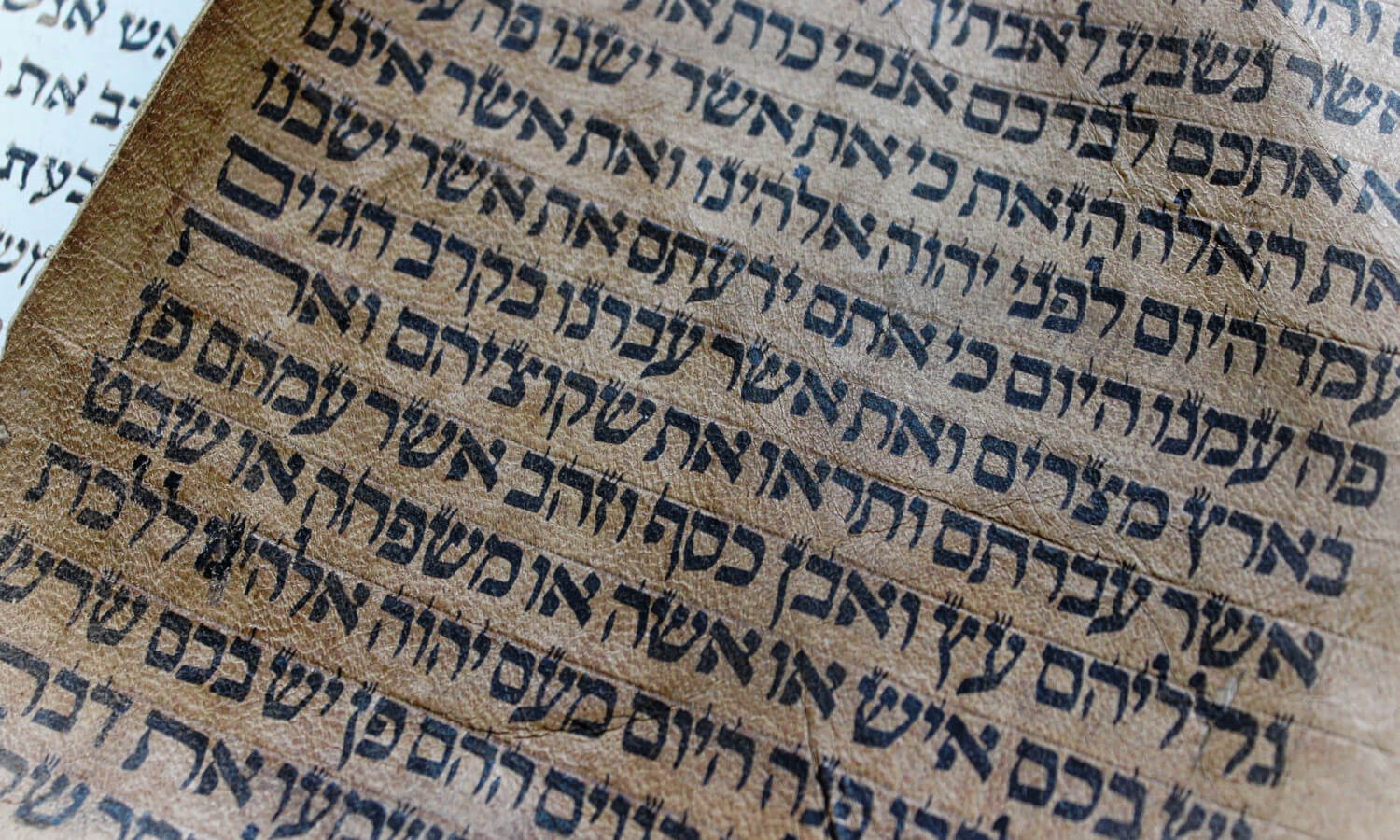
The Hebrew Bible frequently contains ideas that, while having a “common” generic meaning, stand out for a particular use or purpose. The Hebrew verb עזר, pronounced “azar,” falls under this category of terms and means “to help.”[1] ‘Azar’ has several meanings besides this broad one, such as: to support, aid, rescue, and assist. This verb and its derivatives share the characteristic of being primarily employed in reference to the Lord God and all that He is, does, provides, and signifies for humanity. About 80 times throughout the [Old Testament], particularly in the Psalms, Isaiah, and 1 and 2 Chronicles, is the verb “azar.”[2]
Divine help
The Psalms describe how the Lord helps those who are in need. He provides solace and aids his people (Psalm 86:17). We can constantly plead for His hand and His laws to be applied to us (Psalm 119:173, 175). The psalmist declares that the city of God will not shift because, according to Psalm 46:5–6, “God will ‘azar’/help her when morning dawns.” That’s true right now, too! “‘Azar’/For the glory of your name, assist us, O God of our salvation. (Psalm 79:9).
Kings learned that the Lord helps
Then, in his petition, King Asa requests the Lord to “azar” or help him because he knows that only the Lord is capable of doing so. 2:11 in 2 Chronicles. In the same way, Uzziah also felt that “God ‘azar’/helped him against the Philistines.” 26:7 in 2 Chronicles. See Amaziah’s behavior in 2 Chronicles 25:8. Those who do not anticipate receiving her/his assistance from the Lord will be let down. That was Ahaz’s experience. He offered sacrifices to these idols in the belief that the gods of Damascus “azar”—helped their kings—in the hopes of receiving assistance from them, but they ultimately brought about both the people’s and his demise (2 Chronicles 28:23). His poor behavior had awful effects on everyone!
Proper names
Given the foregoing, it makes sense that the verb “azar” appears in the names of numerous biblical figures. This relates to constructed names that have the name of God in them as well.
- Azaryah and Azaryahu
This was a common name in ancient Israel. This is understandable because of its special meaning. The name is a composition of the verb ‘azar’/help and ‘YaH’ or ‘YaHu’, both abbreviated forms of the holy name of God: YHWH/LORD.[3] Because the form ‘azar’ can mean past tense with meaning for the present too, ‘Azar-Yah’ as well as ‘Azar-Yahu’ means: The Lord helped/helps.
We read about ‘Azaryah’ who, led by God’s Spirit, acts for king Asa (2 Chronicles 15:1). One of Jehoshaphat’s sons also bore the name ‘Azaryah’ (2 Chronicles 21:2). Hadn’t Jehoshaphat confessed that “the Lord helps” in his intense emergency prayer to the Lord in front of the people (2 Chronicles 20:6-12)?
In the difficult times of rebuilding and recovery during the time of Ezra and Nehemiah, this name is strikingly common. Also in Ezra’s genealogy the name ‘Azaryah’ appears twice (Ezra 7:1,3).[4]
Unfortunately, a beautiful name does not mean that its bearer obeys or follows the Lord, according to Jeremiah’s prophecy (Jeremiah 43:2). You can even act contrary to the meaning of your name!
It is significant that one of Daniel’s courageous friends listened to this name (Daniel 1:6). Despite the pagan name ‘Abednego’[5] that was forced upon him (Daniel 1:7), he must have clung to the meaning of his original name: ‘Azaryah’: the Lord helps! - Azarel
This name is also a composition of ‘azar’ and ‘El’ (God); Azar-El: God helped/helps. Among the men who assisted David during Saul’s pursuit was an ‘Azarel’ (1 Chronicles 12:6). A hopeful name in tough times! Also one of Heman’s sons, who acted as singers, bore this name (1 Chronicles 25:18). Dan’s tribal chief at the time of David was also called ‘Azarel’ (1 Chronicles 27:22). Centuries later, after returning from exile, this name sounds when in Nehemiah’s time the people settle in and around Jerusalem (Nehemiah 11:13) and later at the solemn inauguration of the wall. Then a musician ‘Azarel’ appears again (Nehemiah 12:36). See also Ezra 10:41.
The background to the naming of these people is unknown to us. It is possible that this expresses conscious trust in God and dependence on his assistance.
Testimonial name
In the New Testament the name ‘Lazarus’ appears, the Greek form of the Hebrew ‘El-azar’ (God helped/helps). In the parable of the rich man and poor Lazarus, we are taught that the Lord God lovingly looks after those who expect their help from Him and gives them the comfort and relief of His glorious presence forever (Luke 16:19-31).
Lazarus, the brother of Martha and Mary, lived in Bethany (John 11:1/12:1). This man thoroughly experienced the meaning of his name ‘God helps’ and saw and experienced with all those present that God ‘azar’/helps out with love and compassion. When Lazarus died, the Lord Jesus was deeply moved by the death of his beloved friend (John 11:35) and all showed his divine omnipotence by calling him back to life (John 11:43). Lazarus’ life was an impressive testimony to God’s almighty assistance, and this made his name a special ‘testimonial name.’
Whatever name we go by: Anyone who discovers that the Lord God is a helper who never stops helping may attest to this!
Notes:
[1] Here, we pronounce the verb “azar” without the first letter “áyin,” and this also holds true for nouns derived from it. The reason for this is that the beginning áyin is a deep throat letter that many Westerners find difficult or impossible to say.
[2] The concept is expressed through the usage of the unconjugated form (infinitive) of the verb “azar” anywhere it appears in this article.
[3]The most sacred name of God, YHWH (LORD), is not said out of reverence. YaH and YaHu, the shortened forms, both express the same thing: LORD.
[4] Refer to Nehemiah 3:23, 7:7, 8:7, 10:3, and 12:3. See also 1 Chronicles 15:1, 23:1, 26:7, 20; 28:12, etc.; 1 Chronicles 2:8,38; 5:35; 6:21; 9:11; and so on. See also 1 Chronicles 22:6, 1 Kings 4:2,5, and 2 Kings 14:21.
This is most likely the same as “Abednebo,” who was Nebo’s servant. Nebo was the Babylonian god of commerce, transportation, writing, and astrologers.





